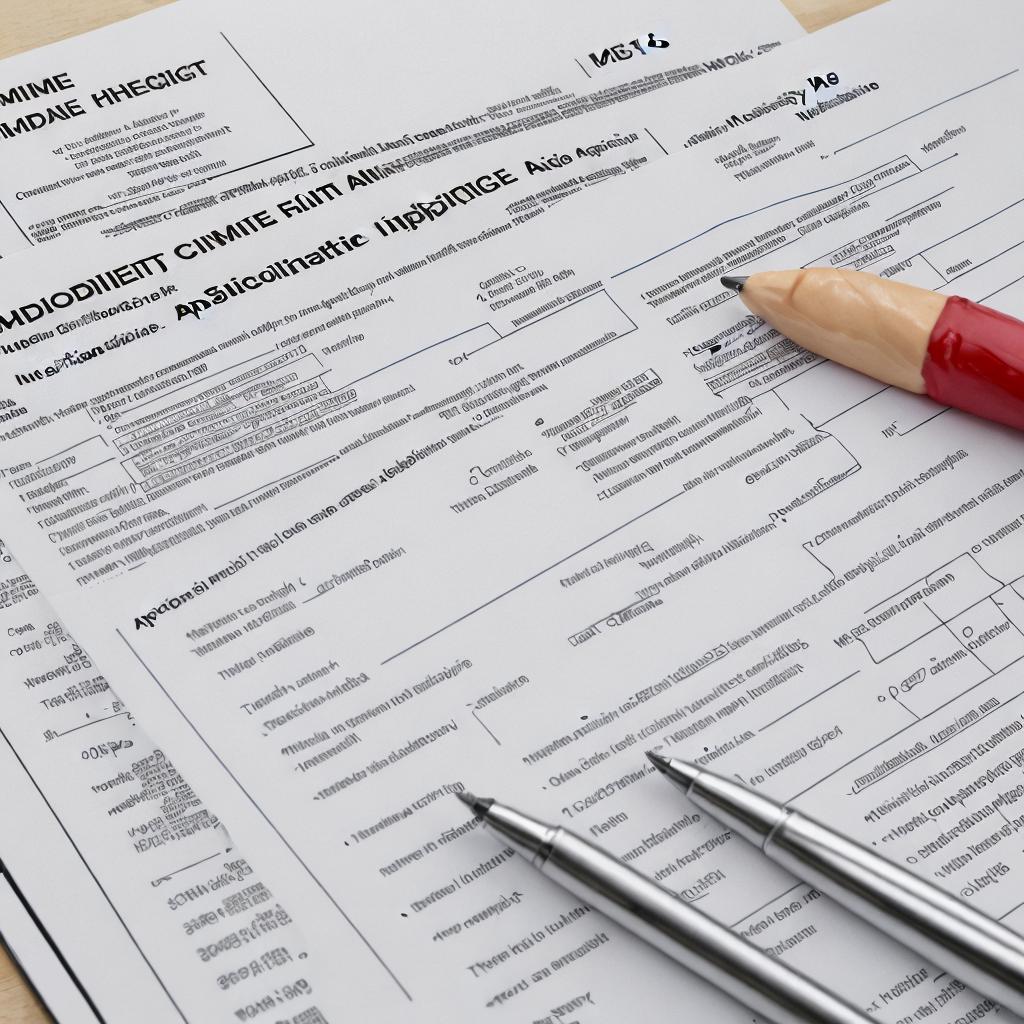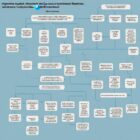4 Key Eligibility Criteria for Medicaid Application

Are you ready to navigate the maze of Medicaid eligibility? Look no further, because we’ve got you covered.
In this article, we’ll walk you through the four key criteria you need to meet in order to apply for Medicaid. From income requirements to citizenship and residency criteria, we’ll break it down for you in a detail-oriented and precise manner.
So, buckle up and get ready to unlock the doors to Medicaid eligibility.
Key Takeaways
- Medicaid eligibility is based on income requirements set by each state.
- Medicaid has specific asset limits to ensure the program is available to those who truly need it.
- To qualify for Medicaid, you must be a U.S. citizen or a qualified non-citizen.
- Pregnant women, children in low-income families, and individuals with disabilities have special eligibility categories for Medicaid coverage.
Income Requirements
To qualify for Medicaid, you must meet the income requirements set by your state. Medicaid is a government program that provides medical assistance to individuals and families with low income. The income limits vary from state to state, so it’s important to check the guidelines specific to your state.
Generally, the income eligibility is based on a percentage of the federal poverty level (FPL). For example, some states may have an income limit set at 138% of the FPL for Medicaid expansion populations, while others may have a lower limit for non-expansion populations. It’s crucial to understand that income includes not only wages and salaries but also other sources such as Social Security benefits, pensions, and rental income. Additionally, some deductions may be allowed, such as medical expenses or child care costs.
It’s worth noting that certain groups, such as children, pregnant women, and individuals with disabilities, may have different income thresholds. Understanding the income requirements for Medicaid is essential as it serves as a stepping stone to the next important criterion: asset limits.
Now, let’s delve into the topic of ‘Asset Limits’ and how it factors into Medicaid eligibility.
Asset Limits
You must meet specific asset limits in order to qualify for Medicaid. These limits are in place to ensure that the program is available to those who truly need it. Here are three key points to understand about asset limits:
- Countable assets: Medicaid considers certain assets as countable when determining eligibility. These include cash, bank accounts, stocks, bonds, real estate (other than the primary residence), and vehicles (other than one used for transportation).
- Exempt assets: Some assets are exempt from being counted towards the asset limit. These can include the primary residence, personal belongings, household goods, and a vehicle used for transportation.
- Asset limits: The specific asset limits vary by state, and they can change each year. Generally, the limit for an individual is around $2,000, while for couples, it can be around $3,000. Some states also have higher asset limits for certain populations, such as individuals with disabilities or the elderly.
Understanding these asset limits is crucial when applying for Medicaid. Once you meet the asset limits, you can move on to the next eligibility criteria, which are the citizenship and residency criteria.
Citizenship and Residency Criteria
Meeting the citizenship and residency criteria is an important step in qualifying for Medicaid. To be eligible for Medicaid, you must be either a U.S. citizen or a qualified non-citizen. U.S. citizens can provide proof of citizenship through documents such as a birth certificate, U.S. passport, or Certificate of Naturalization. On the other hand, qualified non-citizens include lawful permanent residents, refugees, asylees, and individuals with certain visas. They must provide documentation to prove their immigration status.
In addition to citizenship requirements, you must also meet the residency criteria. Generally, you must be a resident of the state where you’re applying for Medicaid. This means that you live in the state and consider it your permanent home. Some states may require a specific duration of residency, such as living in the state for at least 30 days before applying for Medicaid.
It’s important to note that undocumented immigrants are generally not eligible for Medicaid benefits, except for emergency services. However, some states have their own programs that provide health coverage to undocumented immigrants, so it’s worth checking with your state’s Medicaid office.
Meeting the citizenship and residency criteria is crucial to qualify for Medicaid. By providing the necessary documentation and meeting the requirements, you can ensure that you’re on track to access the healthcare services you need.
Special Eligibility Categories
Special eligibility categories in Medicaid application include certain groups of individuals who may qualify for Medicaid based on specific circumstances. These categories are designed to provide healthcare coverage for individuals who may have unique needs or situations. Here are three special eligibility categories to consider:
- Pregnant Women: Medicaid provides coverage for pregnant women to ensure they receive the necessary prenatal care and medical services during their pregnancy. This category aims to promote the health and well-being of both the mother and the unborn child.
- Children: Medicaid offers coverage for children in low-income families, ensuring they’ve access to essential healthcare services, including doctor visits, immunizations, and hospital care. This category aims to prioritize the health and development of children, giving them a strong foundation for a healthy future.
- Individuals with Disabilities: Medicaid provides coverage for individuals with disabilities who meet certain criteria. This category helps ensure that individuals with disabilities have access to the medical care and support services they need to manage their conditions and improve their quality of life.
By including these special eligibility categories, Medicaid aims to address the unique healthcare needs of these individuals and ensure that they’ve access to the necessary medical services.
It’s important to understand the specific requirements and qualifications for each category to determine eligibility for Medicaid coverage.
Frequently Asked Questions
What Are the Documentation Requirements for Proving Income Eligibility for Medicaid?
To prove your income eligibility for Medicaid, you’ll need to provide documentation. This includes pay stubs, tax returns, and bank statements. Make sure these documents accurately reflect your current financial situation.
Are There Any Exemptions or Exceptions to the Asset Limits for Medicaid Eligibility?
There are exemptions and exceptions to the asset limits for Medicaid eligibility. These exceptions vary by state and may include certain types of property or assets that are not counted towards the asset limit.
Can Non-U.S. Citizens Apply for Medicaid?
Yes, non-U.S. citizens can apply for Medicaid in certain circumstances. Eligibility criteria vary depending on factors like immigration status and duration of residency. You should consult with Medicaid officials for specific information.
Is There a Waiting Period for Medicaid Coverage for New Residents?
There’s no waiting period for Medicaid coverage for new residents. Once you meet the eligibility criteria, you can apply and receive coverage right away. Don’t worry about delays, you’ll be covered promptly.
What Are the Specific Criteria for the Special Eligibility Categories, Such as Pregnant Women or Individuals With Disabilities?
To determine if you qualify for Medicaid under special eligibility categories like pregnant women or individuals with disabilities, specific criteria must be met. These criteria may include income limits, residency requirements, and documentation of pregnancy or disability.



